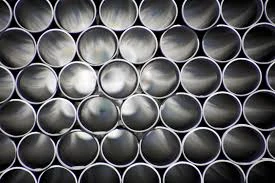
-
 Afrikaans
Afrikaans -
 Albanian
Albanian -
 Amharic
Amharic -
 Arabic
Arabic -
 Armenian
Armenian -
 Azerbaijani
Azerbaijani -
 Basque
Basque -
 Belarusian
Belarusian -
 Bengali
Bengali -
 Bosnian
Bosnian -
 Bulgarian
Bulgarian -
 Catalan
Catalan -
 Cebuano
Cebuano -
 China
China -
 China (Taiwan)
China (Taiwan) -
 Corsican
Corsican -
 Croatian
Croatian -
 Czech
Czech -
 Danish
Danish -
 Dutch
Dutch -
 English
English -
 Esperanto
Esperanto -
 Estonian
Estonian -
 Finnish
Finnish -
 French
French -
 Frisian
Frisian -
 Galician
Galician -
 Georgian
Georgian -
 German
German -
 Greek
Greek -
 Gujarati
Gujarati -
 Haitian Creole
Haitian Creole -
 hausa
hausa -
 hawaiian
hawaiian -
 Hebrew
Hebrew -
 Hindi
Hindi -
 Miao
Miao -
 Hungarian
Hungarian -
 Icelandic
Icelandic -
 igbo
igbo -
 Indonesian
Indonesian -
 irish
irish -
 Italian
Italian -
 Japanese
Japanese -
 Javanese
Javanese -
 Kannada
Kannada -
 kazakh
kazakh -
 Khmer
Khmer -
 Rwandese
Rwandese -
 Korean
Korean -
 Kurdish
Kurdish -
 Kyrgyz
Kyrgyz -
 Lao
Lao -
 Latin
Latin -
 Latvian
Latvian -
 Lithuanian
Lithuanian -
 Luxembourgish
Luxembourgish -
 Macedonian
Macedonian -
 Malgashi
Malgashi -
 Malay
Malay -
 Malayalam
Malayalam -
 Maltese
Maltese -
 Maori
Maori -
 Marathi
Marathi -
 Mongolian
Mongolian -
 Myanmar
Myanmar -
 Nepali
Nepali -
 Norwegian
Norwegian -
 Norwegian
Norwegian -
 Occitan
Occitan -
 Pashto
Pashto -
 Persian
Persian -
 Polish
Polish -
 Portuguese
Portuguese -
 Punjabi
Punjabi -
 Romanian
Romanian -
 Russian
Russian -
 Samoan
Samoan -
 Scottish Gaelic
Scottish Gaelic -
 Serbian
Serbian -
 Sesotho
Sesotho -
 Shona
Shona -
 Sindhi
Sindhi -
 Sinhala
Sinhala -
 Slovak
Slovak -
 Slovenian
Slovenian -
 Somali
Somali -
 Spanish
Spanish -
 Sundanese
Sundanese -
 Swahili
Swahili -
 Swedish
Swedish -
 Tagalog
Tagalog -
 Tajik
Tajik -
 Tamil
Tamil -
 Tatar
Tatar -
 Telugu
Telugu -
 Thai
Thai -
 Turkish
Turkish -
 Turkmen
Turkmen -
 Ukrainian
Ukrainian -
 Urdu
Urdu -
 Uighur
Uighur -
 Uzbek
Uzbek -
 Vietnamese
Vietnamese -
 Welsh
Welsh -
 Bantu
Bantu -
 Yiddish
Yiddish -
 Yoruba
Yoruba -
 Zulu
Zulu
fiberglass for steel smelting plant.
The Role of Fiberglass in Steel Smelting Plants
The process of steel smelting is a complex and energy-intensive operation that involves the extraction and processing of iron from ore for the production of steel. Modern steel manufacturing facilities continually seek innovative materials and technologies to enhance efficiency, safety, and environmental sustainability. One such material that has gained prominence in recent years is fiberglass. This article explores the advantages and applications of fiberglass in steel smelting plants.
Understanding Fiberglass
Fiberglass, or glass-reinforced plastic (GRP), is a composite material made of glass fibers and a resin matrix. The unique properties of fiberglass, including its high strength-to-weight ratio, corrosion resistance, and excellent insulation capabilities, make it an ideal candidate for various applications in the industrial sector. In steel smelting plants, fiberglass is primarily used in the construction of equipment and as a protective lining for furnaces and other components.
High Temperature Resistance
Steel smelting processes typically operate at extremely high temperatures, often exceeding 1,600 degrees Celsius. Fiberglass is engineered to withstand these conditions, making it an excellent material for furnace linings and other components that encounter direct heat. Unlike traditional materials such as metal or ceramic, fiberglass maintains its structural integrity and performance even in the harshest environments, thus ensuring the longevity and reliability of smelting operations.
Corrosion Resistance
Steel smelting operations involve the use of various chemicals and materials, many of which can be highly corrosive. Fiberglass's natural resistance to chemical degradation is a significant advantage in this context. By utilizing fiberglass linings and components, smelting plants can reduce the risk of equipment failure and prolong the lifespan of critical infrastructure. This not only results in cost savings due to decreased maintenance and replacement needs but also enhances the overall safety of the facility.
fiberglass for steel smelting plant.

Weight Reduction and Structural Efficiency
One of the remarkable attributes of fiberglass is its lightweight nature. When integrated into the design of equipment and structures within steel smelting plants, fiberglass can significantly reduce overall weight. This weight reduction can lead to lower operational costs, as less energy is required for transport and handling. Additionally, lightweight components may enable more efficient designs, allowing for improved flow dynamics in smelting processes and reducing energy consumption.
Insulation Properties
Effective thermal insulation is crucial in steel smelting plants to maximize energy efficiency and maintain operating temperatures. Fiberglass offers excellent insulation characteristics, making it a preferred choice for thermal barriers. By minimizing heat loss, fiberglass insulation can lead to reduced energy requirements and lower greenhouse gas emissions. In an era where environmental sustainability is paramount, such benefits align with the goals of many steel producers seeking to minimize their ecological footprint.
Versatility in Applications
The versatility of fiberglass allows it to be molded into various shapes and sizes, enabling tailored solutions for a wide array of applications within steel smelting plants. From protective linings for furnaces to piping systems that transport molten materials, fiberglass can be utilized in numerous roles. Additionally, its non-conductive property makes it suitable for electrical insulation in control panels and equipment, thereby enhancing operational safety.
Conclusion
As the steel industry continues to evolve and adapt to modern challenges, the adoption of advanced materials like fiberglass is paving the way for a more efficient and sustainable future. Its high-temperature resistance, corrosion resilience, lightweight nature, and excellent insulation capabilities make fiberglass an invaluable asset in steel smelting plants. By investing in fiberglass technology, steel producers can not only enhance their operational efficiency but also contribute to a greener and more sustainable industry. As innovations in fiberglass materials progress, the potential for improved performance and cost-effectiveness in steel production will undoubtedly expand, benefiting manufacturers and the environment alike.









